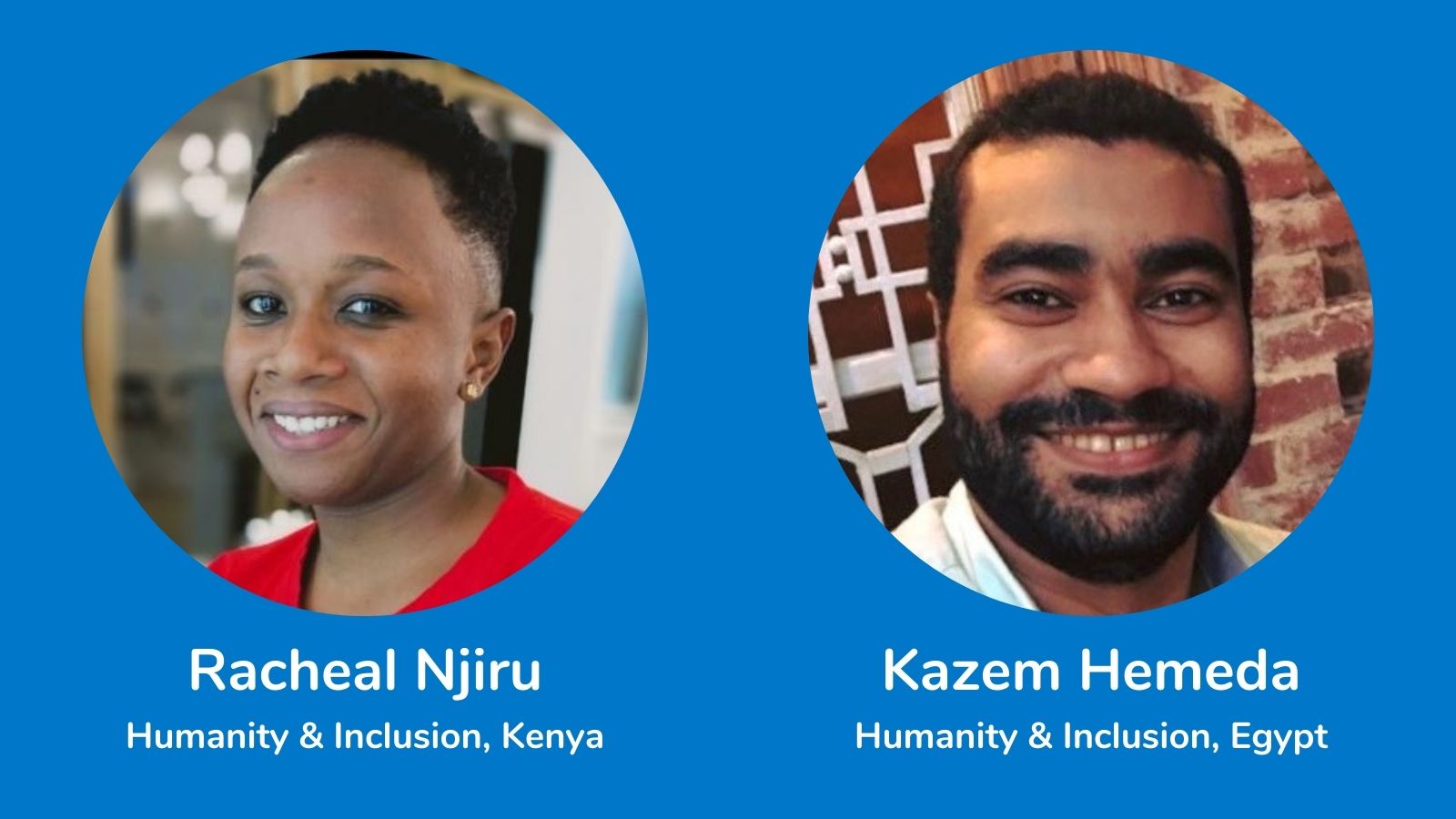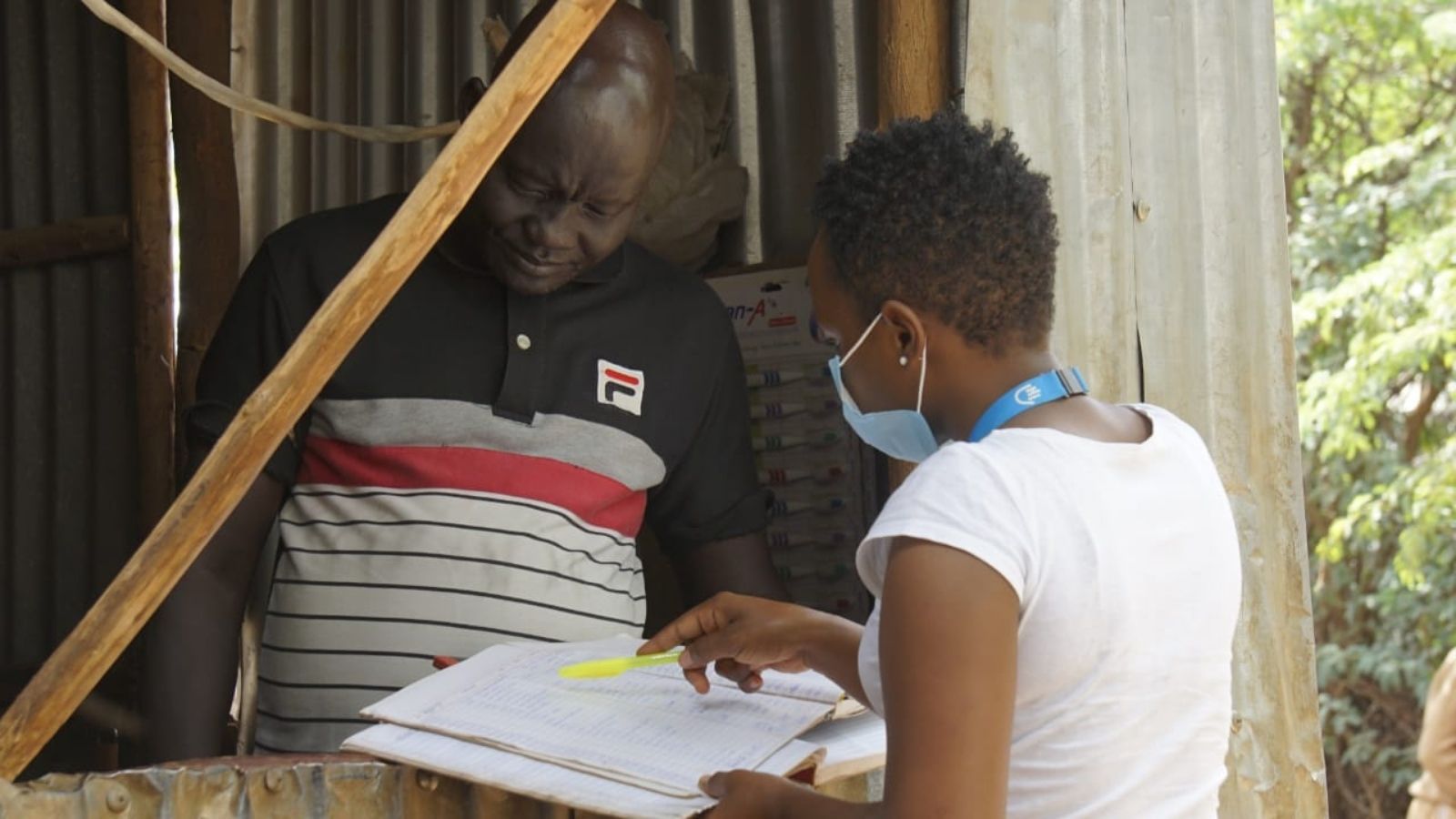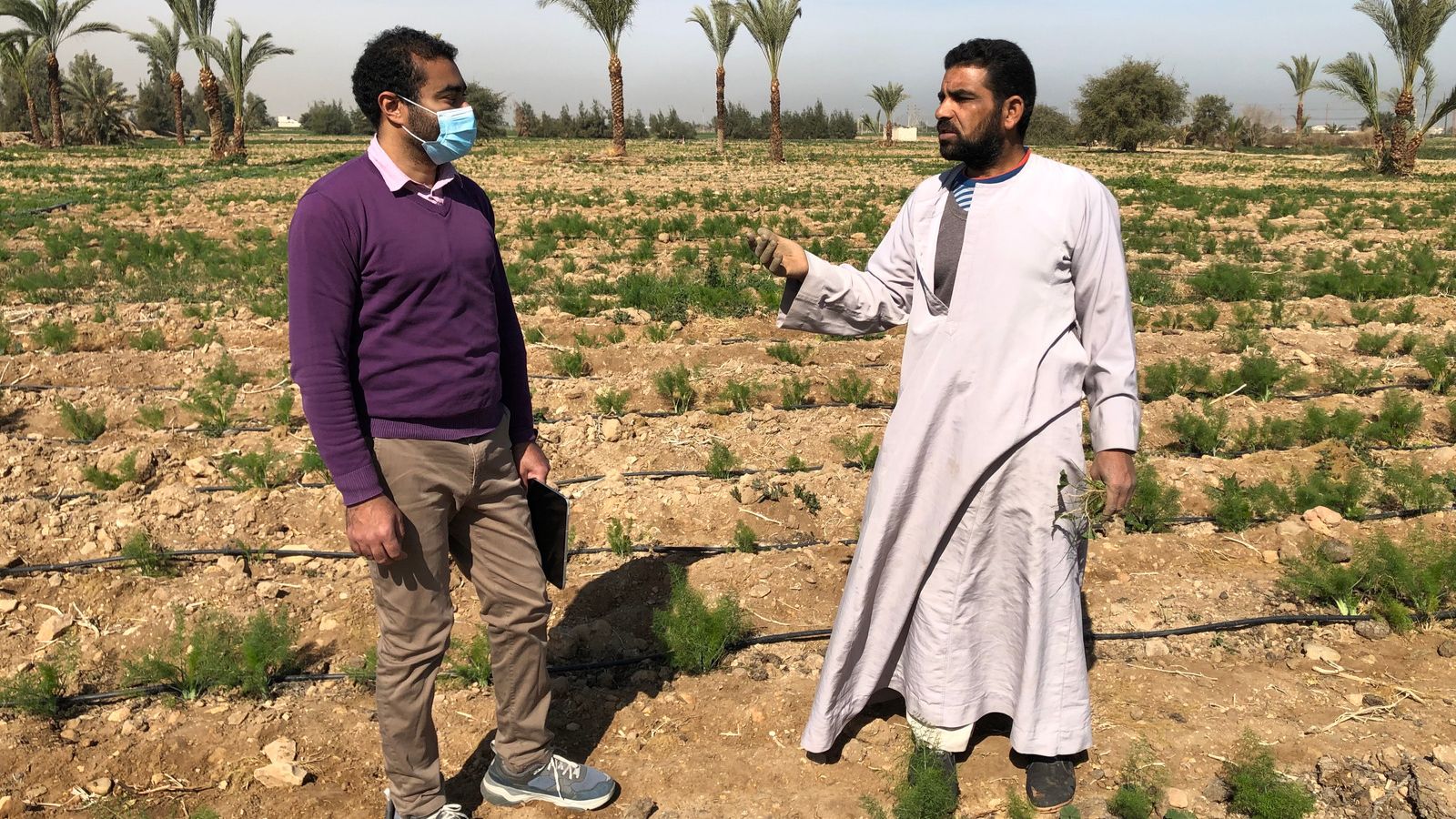Racheal has worked for two years as a Disability Inclusive Project Manager at the Kakuma refugee camp in Kenya. Kazem has worked for Humanity & Inclusion since 2015 and is currently the Deputy Country Manager for Egypt.
Q: Can you tell us more about the Hilton Leadership Institute?
Racheal: It was an 8-month leadership training that involved doing assignments online, meeting online with other scholars weekly and we also had peer coaching calls. Of course, I still had to continue with my job. It was very demanding, so I had to organize my time very well and prioritize tasks.
I was very humbled to represent Humanity & Inclusion in the program. There were just the two of us, Kazem and I. With every scholar I managed to talk to, I made sure I talked about Humanity & Inclusion, what we do globally and in Kenya. So, it was an opportunity to showcase Humanity & Inclusion, and I actually found quite a lot of them were aware of our organization.
I want to express my gratitude to the Hilton Leadership Institute and Atlas Corps. I am privileged to have been part of the Institute’s program. It was very, very inspiring. I hope there will be more opportunities for other Humanity & Inclusion colleagues to equally participate in this kind of programs.
Kazem: I felt thrilled for the experience, and proud to be representing Humanity & Inclusion at this prestigious program. Throughout the 8-month long program, I learned about the missions of other international humanitarian organizations, and I was delighted to engage in conversations with other program colleagues about including persons with disabilities in their respective interventions. I also learned from their innovations and developed a better understanding about the different contexts, challenges and opportunities in different parts of the world. Having this global perspective, I became more interested in learning about Humanity & Inclusion's global work.

Q: Tell us about your capstone project.
Rachael: My project was on facilitating the inclusion of persons with disabilities in socioeconomic development in Kakuma refugee camp and the hosting community. I've been working with persons with disabilities who are in business and I've seen quite a number of barriers. I wanted to look at how systemic change could bring some support to refugees with disabilities in the camp: to identify them and their needs, and target them for certain services that can improve their lives. I did not finish everything in my leadership project, but in my current job the project continues.
Kazem: I will develop a simulation game that will deepen the understanding and commitment of Humanity & Inclusion’s Egypt team to intersectionality and our Disability, Gender, Age institutional policy with funding that I received through a $2,000 "community impact grant" from the program.
Q: What are the key lessons that you have learned and that you can apply in your everyday work?
Racheal: The most important thing that I have learned is that sometimes, as leaders, we are under too much pressure. We have to do our work, ensure that our teams are delivering, both according to our organization’s mandate as well as donor expectations. But we forget about developing ourselves as leaders. I plan to be more aware of myself, to try and develop myself, become better and see how I can develop my team and others.
It's very interesting to actually know that there's so many other people who are doing humanitarian acts across the globe, to know that I'm not the only humanitarian worker who is working very hard to ensure that we are able to support persons with disabilities or marginalized people to have a better livelihood.
In addition to that, I was able to understand in very simple terms the aspect of intersectionality: to identify and recognize that the population we work with face many complex issues that make them even more vulnerable than others.
Kazem: Some of the key things I learned include tactics for leading successful movements, the applications for the concept of intersectionality, as well as a lot of personal development notions and practices such as self-compassion, conflict management styles, strategies for personal resilience, and strategies for remote working.I will exercise the leadership skills I learned through my day-to-day work. I became more self-aware, more capable of addressing conflicts, offering coaching, and more able to deal with stress.
Second, I am implementing a "leadership project" that aims to promote intersectionality among Humanity & Inclusion's operations in Egypt.

Q: Why is inclusion so important?
Racheal: One thing that I always say is that inclusion is not just a Humanity & Inclusion issue. When people or partners want to construct accessible buildings they always think of approaching HI. Inclusion is more than construction of accessible buildings it should be embraced using the twin track approach and partners should be in inclusion in the entire project cycle duration. Humanity & Inclusion will always offer the technical support and expertise to our partners whenever they need it. So, I think if people look at it that way, then we can be able to move forward in the journey of inclusion.
Kazem: Inclusion is a value that humanity needs to thrive in today's world of complex problems. Inclusion means that everybody, including vulnerable populations, have a fair chance to live in dignity, realize their potential and contribute to an equitable and sustainable development.
Q: What motivates you and your work?
Racheal: I love community work. I felt in my heart before joining campus that I wanted to serve humanity and I wanted to be empowered with knowledge on how to do that. What motivates me in my work, is when I am able to see a positive change in someone’s life since I started interacting with them.
Kazem: Despite the challenges we face every day, I motivate myself by remembering that we, as an organization, promote the values of humanity and inclusion, and that we can contribute to making the lives of marginalized and vulnerable people better and happier. This is, indeed, a meaningful mission.

Q: Is there a certain moment or person that stands out in your time at Humanity & Inclusion?
Racheal: In March 2020, when Covid-19 hit, I personally felt very discouraged. I was afraid that all of the effort invested into the project I had been implementing was going to go down the drain. Most of our project participants experienced their businesses being affected by COVID. We got a request from our donor—UK’s Foreign, Commonwealth and Development Office (FCDO)—to develop a concept on the recovery of the businesses that had been affected by COVID-19 and how to cushion them from the effects of the pandemic for six months. With that funding, we were able to support project participants to be able to absorb the economic shock and survive during Covid-19.
One project participant really impressed me: A lady who has a contract to supply charcoal each month to an organization. She was able to save money and constructed rental houses. She made me look at life in a very different way. She did not get discouraged because of Covid-19 pandemic instead, she looked at how was she would be able to support herself then and in the future. Thanks to the business grant we provided to her and the business development trainings that she received, she was able to save money and get herself another income stream.
Kazem: One of the memorable moments was the closing ceremony of the IDMAG—Idmag is Arabic for “inclusion”—project, which I had the honor to manage for five years. The project aimed to improve youth with disabilities' access to livelihood opportunities and social services. I felt very happy to listen to the positive speech delivered by the Minister of Social Solidarity at the event. The speech gave me hope that the impact of IDMAG project was not limited to the local communities it served, but rather, it would extend nationally.
Q: Why is it important for people to support Humanity & Inclusion's work and the communities we serve?
Racheal: We serve a very unique population of persons with disabilities and vulnerable populations, and we are in the business of ensuring that their lives are improved. We promote their dignity in our different projects. We are very keen on matters regarding inclusion. We want to see persons with disabilities taking different positions in leadership and bringing change. We also ensure that we support more partners to be more inclusive and to understand and apply intentional inclusion in their programming.
The communities we serve are happy that Humanity & Inclusion is providing different services. Right now, in Kakuma, we have rehabilitation, inclusive education and livelihood projects. What is Humanity & Inclusion trying to do? We're trying to promote independence for everyone. Because you would wish that persons with disabilities are able to be empowered economically, empowered in education and also are able to be functionally independent. It’s this holistic approach that we want to look at, and we hope that we'll keep getting the support from our donors to be able to continue doing this noble task.
Kazem: In my opinion, Humanity & Inclusion is a unique organization that capitalizes in its enormous technical expertise and talented team to empower persons with disabilities and vulnerable groups to assert their rights. At the same time, Humanity & Inclusion supports a multitude of stakeholders, including service providers and governments, to become inclusive and responsive to the needs and priorities of vulnerable groups. This twin-track approach has proven effective as it leaves the served communities with increased capability ownership for their own development.







